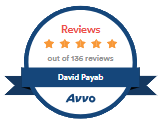Pregnancy is a beautiful and transformative time in a person’s life. However, it can also come with challenges for many pregnant employees—especially in the workplace. Sadly, discriminatory comments or treatment based on pregnancy still happen more frequently than we’d like to think. While navigating these situations can be stressful, it’s important to know your rights and the steps you can take to protect yourself.
Understanding Pregnancy Discrimination
Pregnancy discrimination occurs when an employer treats an employee unfavorably because of their pregnancy, childbirth, or medical conditions related to either. This kind of discrimination can take many forms, such as rude comments, unequal treatment, or even demotions or termination. It’s important to note that pregnancy discrimination is illegal under federal and most state laws.
The Pregnancy Discrimination Act (PDA) under Title VII of the Civil Rights Act of 1964 prohibits employers from discriminating against employees on the basis of pregnancy, childbirth, or related medical conditions. Additionally, the Family and Medical Leave Act (FMLA) entitles eligible employees to take unpaid leave for matters such as childbirth or pregnancy-related health conditions without fear of losing their job.
If you feel you’re being treated unfairly because of your pregnancy, knowing this framework of legal protections is the first step toward advocating for yourself.
Recognizing Discriminatory Comments or Treatment
Workplace discrimination doesn’t always come in obvious forms. It can range from subtle remarks to overt acts of unfair treatment. Here are some common examples to recognize:
- Comments or jokes about your pregnancy that imply that your condition makes you less capable.
- Assumption-based actions, like being excluded from projects or assignments because your employer assumes you won’t be able to manage them.
- Unequal treatment, such as not being offered accommodations for pregnancy-related needs that are comparable to those given for other medical conditions.
- Retaliation for discussing your pregnancy openly, requests for accommodation, or taking parental leave.
Understanding what constitutes discrimination early on is crucial to addressing it.
Steps to Handle Discrimination at Work
If you face pregnancy-related discrimination at work, here’s how you can take action effectively:
1. Document Everything
Details are essential when building your case against discriminatory treatment. Keep a journal where you note dates, times, and descriptions of the incidents, including who was involved and any witnesses. Save all relevant emails, memos, or other communications that could support your claims. For example, if you’re excluded from workplace opportunities after announcing your pregnancy, note when this begins happening.
2. Review Your Rights and Company Policies
Beyond federal laws like the PDA and FMLA, check if your state has specific pregnancy protection laws. Additionally, most companies have policies addressing workplace discrimination. Familiarize yourself with these policies to understand what internal protections and procedures are in place.
3. Speak Up Early
Often, discriminatory behavior persists because it goes unchallenged. Consider discussing your experience candidly with your supervisor, HR department, or an ombudsperson. Be clear yet professional:
- Use facts to describe what occurred and how it affected your work or well-being.
- Reference your right to fair treatment under company policies or the law.
For instance, you might say, "I’ve noticed that since announcing my pregnancy, I’ve been excluded from group leadership tasks that I’ve previously handled without issue. I’d like to ensure fair access to opportunities moving forward."
4. Request Reasonable Accommodations
Employers are generally required to provide reasonable accommodations for pregnancy-related conditions, including adjustments to work schedules or duties. If you need an accommodation, make your request in writing and ensure your employer provides a written response.
5. Seek Support from Trusted Allies
You don’t have to face this alone. Speak with trusted colleagues, mentors, or employee affinity groups who can offer guidance or stand by you as supportive witnesses if needed.
6. File a Formal Complaint with HR
If addressing the issue informally doesn’t resolve the situation, filing a formal complaint within your company may be necessary. Use your records and documentation to clearly outline your concerns. Most HR departments are trained to handle such situations in a confidential and impartial manner.
7. Contact Legal Counsel or Advocacy Resources
If internal remedies don’t work—or if retaliation occurs—it’s time to consult an experienced employment attorney or your local Equal Employment Opportunity Commission (EEOC) office. Filing a complaint through the EEOC or other legal channels is your right, and it fosters accountability for discriminatory behavior.
Protecting Yourself and Your Career
Speaking up about discriminatory behavior, especially during a vulnerable time like pregnancy, can feel overwhelming. However, each step you take to address these issues contributes to a more respectful and inclusive workplace for yourself and others.
Remember:
- You have the right to fair treatment in the workplace.
- Seeking guidance from HR or an attorney is not “being difficult”—it’s advocating for yourself and your career.
- You’re not alone in dealing with this. Many resources, including local or national advocacy groups, stand ready to help.
Fostering Pregnancy-Friendly Workplaces
Organizations that foster pregnancy-friendly workplaces benefit everyone involved. If you’re in a position to influence workplace culture, encourage open communication, equitable opportunity, and education around pregnancy discrimination laws. Empower others to call out discriminatory behaviors and advocate for inclusive policies like flexible scheduling or parental support programs.
Creating a positive environment not only supports pregnant and parenting employees but enhances workplace morale and productivity.
Pregnancy Discrimination Attorney for California Employees
Pregnancy discrimination in the workplace is both illegal and unacceptable, but it’s a reality many still face. If you’re experiencing challenges at work due to your pregnancy, know that you don’t have to accept unfair treatment. Advocate for yourself and get the support you deserve. Whether it’s through HR, legal counsel, or trusted allies, you’re never alone in standing up for your rights.
Need additional help navigating pregnancy-related workplace concerns? Our pregnancy discrimination attorney here at The Law Office of Payab & Associates is ready to hear your story, explore your options, and, if needed, diligently pursue restitution on your behalf.
Stand up for your rights now. Reach out to us at (818) 918-5522 today.

































